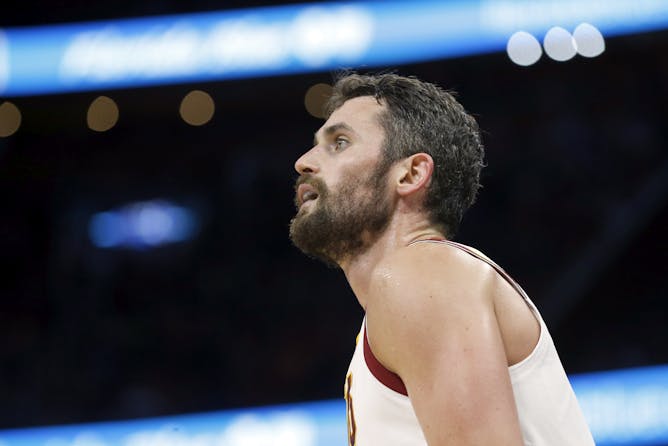
In 2018, Cleveland Cavaliers forward Kevin Love went public with his panic attacks and struggles with anxiety.
Reuters/Kim Klement-USA Today Sports
John Affleck, Pennsylvania State University
Because professional athletes are thought to be paragons of physical and mental toughness, their psychological health has long been a taboo topic. That's starting to change.
|
|
|
|
|
Economy + Business
|
-
Jack L. Harris, State University of New York at New Paltz
Getting everyone whose lives were thrown off-track back takes a lot of personal effort, paired with work done by a constantly shifting mix of nonprofits and governmental agencies over many years.
-
Sarah Thebaud, University of California, Santa Barbara; Leah Ruppanner, University of Melbourne; Sabino Kornrich, Emory University
Dirt blindness is used by some to excuse men for spending a third as much time as women cleaning. A new study shows it's a myth.
-
Young-Joo Lee, University of Central Florida
Approaching gender parity on the boards of big nonprofits might help narrow the pay gap among the sector's highest-paid leaders.
|
|
|
|
From our international editions
|
-
Sui Phang, University of Portsmouth; Peter Bridgewater, University of Canberra
Japan's exit from the IWC should spur on more global cooperation on environmental issues, not less.
-
Peter Gouzouasis, University of British Columbia; Martin Guhn, University of British Columbia
Researchers who looked at over 110,000 students found that learning an instrument in elementary school, and continuing music study into high school, significantly improves school achievement.
-
Emma Kowal, Deakin University; Jacqueline Savard, Deakin University; Jeffrey Craig, Deakin University
Most common chronic diseases are the outcome of complex interactions between genetic, environmental and social risk factors, so a genetic risk score, on its own, isn't much help.
|
|
Today’s chart |
-
  |
Young-Joo Lee
University of Central Florida
|
| |